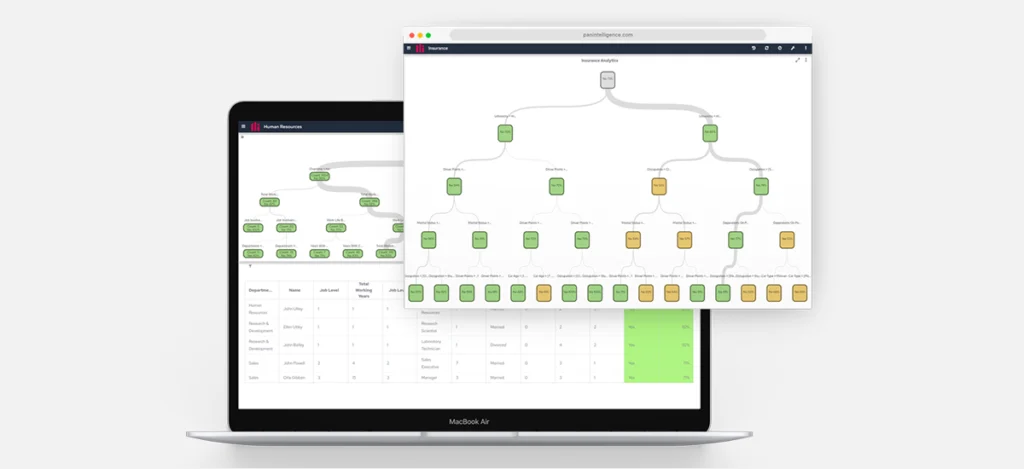Artificial intelligence is offering unprecedented opportunities for companies to enhance efficiency, improve customer experiences, and make data-driven decisions. However, the journey to successfully implementing AI can appear complex and requires a well-thought-out strategy.
In this blog post, we distill the key insights from our recent webinar on how to pilot AI successfully, providing a roadmap for businesses to navigate the adoption of AI technologies tailored to their unique needs and objectives. Whether you're a business leader looking to embark on an AI initiative or simply curious about the process, this article offers valuable guidance on how to approach AI adoption strategically.
The webinar, packed with expert advice and practical tips, is now available on-demand for those who couldn't attend the live session. Watch it below!
Identifying business needs and objectives for AI implementation
For a successful AI pilot, businesses must begin with a strategic approach that includes a clear identification of their needs and objectives. It is crucial to understand the specific challenges and opportunities where AI can make a significant impact, such as task automation, customer experience enhancement, or improved data-driven decision-making. Tailoring the AI strategy to the industry's specific requirements is essential to ensure the pilot aligns with the business's unique goals, setting the stage for an effective AI solution that delivers the desired outcomes.
Selecting the right AI solution and building a skilled team
The success of an AI pilot hinges on selecting the right AI solution that offers scalability, flexibility, and compatibility with existing systems. The chosen solution should enhance business operations and have the potential to evolve with the company's needs. The AI solution provider's reputation and support are also critical factors, as they can significantly influence the long-term success of the AI implementation.
Assembling a skilled AI team is equally important. This team should comprise technical experts, everyday users, or 'domain experts'. Whether by training existing staff, recruiting new talent, or partnering with external experts, creating the right team is crucial for a successful AI implementation. Encouraging collaboration between AI specialists and other departments is important to ensure AI initiatives are integrated into the broader business strategy.

Panintelligence Causal AI model example
Data strategy, model training, and AI integration
A solid data strategy is the cornerstone of any AI initiative. Businesses must define the necessary data, how to collect it, and how to maintain its quality while complying with privacy laws. Quality data is more important than quantity, and effective data management systems are necessary to ensure the AI model can learn accurately and provide valuable insights.
Training the AI model is a detailed process that may require multiple iterations. A comprehensive dataset is necessary to teach the model and align its outputs with business goals. Data scientists and AI experts should be closely involved in this phase to develop a model that is functional and reliable.
Seamless integration of the AI model into business operations is crucial, with necessary adjustments made to existing systems. Stakeholders should be engaged and trained to minimize disruptions. Addressing the cultural shift is also important by helping the team understand the benefits of AI and preparing them for new workflows and decision-making processes.
After integration, monitoring the AI model's performance against business goals is essential. Established metrics should be used to measure impact and identify areas for improvement. Businesses should continuously address challenges and refine the AI system to maintain its effectiveness and value.
AI requires ongoing enhancement to stay relevant. As the business evolves, the AI model should be updated, and businesses should stay informed about AI advancements that could benefit their operations. Regular reassessment of the data strategy and AI solutions is necessary to ensure the business remains at the forefront of innovation and maintains a competitive edge.
FAQs
Evaluate AI solutions based on scalability, flexibility, compatibility with your infrastructure, the vendor's reputation, and the support services they offer
A team that includes data scientists, machine learning engineers, and domain experts is necessary. This team can be formed by upskilling current employees, hiring new talent, or partnering with external experts.
Data is critical. Without high-quality data, your AI system won't function effectively. A robust data strategy focusing on data collection, management, and integrity is essential.
Regularly monitor and evaluate the AI model's performance. If it's not meeting objectives, identify the issues and adjust accordingly. Continuous improvement is key to a successful AI pilot.
Key takeaways
- A strategic approach to AI implementation starts with identifying specific business needs and objectives.
- Selecting the right AI solution and building a skilled team are critical for the success of an AI pilot.
- A comprehensive data strategy is essential for training reliable AI models and integrating them into business operations.
- Continuous monitoring and enhancement of AI systems are necessary to maintain relevance and achieve business goals.
We're here to support your journey, offering the necessary tools and expertise to help your business effectively implement AI. By partnering with us, you can confidently take the next step in running a trial and harness the full potential of AI to drive your business forward.























